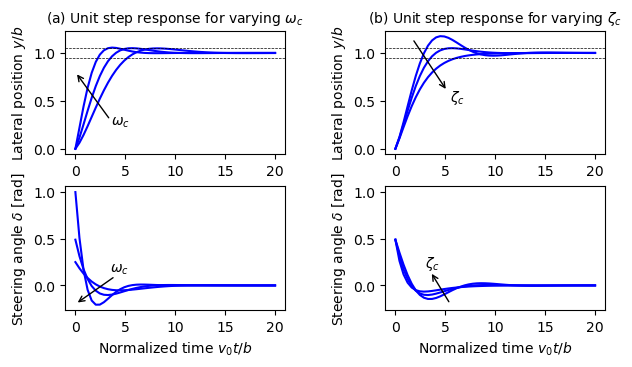Figure 7.6: State feedback control of a steering system
| Chapter | State Feedback |
|---|---|
| Figure number | 7.6 |
| Figure title | State feedback control of a steering system |
| GitHub URL | https://github.com/murrayrm/fbs2e-python/blob/main/example-7.4-steering place.py |
| Requires | python-control |
Figure 7.6: State feedback control of a steering system. Unit step responses (from zero initial condition) obtained with controllers designed with , 0.7, and 1 [rad/s] are shown in (a). The dashed lines indicate % deviations from the setpoint. Notice that response speed increases with increasing , but that large also give large initial control actions. Unit step responses obtained with a controller designed with and , 0.7, and 1 are shown in (b).
<nowiki>
- example-7.4-steering_place.py - <Short description>
- RMM, 28 Nov 2024
- Figure 7.6: State feedback control of a steering system. Unit step
- responses (from zero initial condition) obtained with controllers
- designed with zeta_c = 0.7 and omega_c = 0.5, 0.7, and 1 [rad/s] are
- shown in (a). The dashed lines indicate ±5% deviations from the
- setpoint. Notice that response speed increases with increasing omega_c,
- but that large omega_c also give large initial control actions. Unit step
- responses obtained with a controller designed with omega_c = 0.7 and
- zeta_c = 0.5, 0.7, and 1 are shown 2in (b).
import control as ct import numpy as np import matplotlib.pyplot as plt ct.use_fbs_defaults()
- System dynamics
- Get the normalized linear dynamics
from steering import linearize_lateral sys = linearize_lateral(normalize=True, output_full_state=True)
- Function to place the poles at desired values
def steering_place(sys, omega, zeta):
# Get the pole locations based on omega and zeta desired_poly = np.polynomial.Polynomial([omega**2, 2 * zeta * omega, 1]) return ct.place(sys.A, sys.B, desired_poly.roots())
- Set up the plotting grid to match the layout in the book
fig = plt.figure(constrained_layout=True) gs = fig.add_gridspec(3, 14) # allow some space in the middle left = slice(0, 6) right = slice(7, 13)
- (a) Unit step response for varying omega_c
ax_pos = fig.add_subplot(gs[0, left]) ax_delta = fig.add_subplot(gs[1, left]) ax_pos.set_title(
r"(a) Unit step response for varying $\omega_c$", size='medium')
timepts = np.linspace(0, 20) zeta_c = 0.7 for omega_c in [0.5, 0.7, 1]:
# Compute the gains for the controller K = steering_place(sys, omega_c, zeta_c) kf = omega_c**2
# Compute the closed loop system clsys = ct.feedback(sys, K) * kf
# Simulate the closed loop dynamics response = ct.forced_response(clsys, timepts, 1, X0=0)
ax_pos.plot(response.time, response.states[0], 'b') ax_delta.plot(response.time, (kf - K @ response.states)[0], 'b')
- Label the plot
ax_pos.set_ylabel(r"Lateral position $y/b$") ax_delta.set_xlabel(r"Normalized time $v_0 t/b$") ax_delta.set_ylabel(r"Steering angle $\delta$ [rad]")
ax_pos.axhline(0.95, color='k', linestyle='--', linewidth=0.5) ax_pos.axhline(1.05, color='k', linestyle='--', linewidth=0.5) ax_pos.annotate(
"", xy=(3.5, 0.3), xytext=[0, 0.8], arrowprops={'arrowstyle': '<-'})
ax_pos.text(3.6, 0.25, r"$\omega_c$")
ax_delta.annotate(
"", xy=(4, 0.1), xytext=(0, -0.2), arrowprops={'arrowstyle': '<-'})
ax_delta.text(3.5, 0.15, r"$\omega_c$")
- (b) Unit step response for varying zeta_c
ax_pos = fig.add_subplot(gs[0, right], sharey=ax_pos) ax_delta = fig.add_subplot(gs[1, right], sharey=ax_delta) ax_pos.set_title(
r"(b) Unit step response for varying $\zeta_c$", size='medium')
timepts = np.linspace(0, 20) omega_c = 0.7 for zeta_c in [0.5, 0.7, 1]:
# Compute the gains for the controller K = steering_place(sys, omega_c, zeta_c) kf = omega_c**2
# Compute the closed loop system clsys = ct.feedback(sys, K) * kf
# Simulate the closed loop dynamics response = ct.forced_response(clsys, timepts, 1, X0=0)
ax_pos.plot(response.time, response.states[0], 'b') ax_delta.plot(response.time, (kf - K @ response.states)[0], 'b')
- Label the plot
ax_pos.set_ylabel(r"Lateral position $y/b$") ax_delta.set_xlabel(r"Normalized time $v_0 t/b$") ax_delta.set_ylabel(r"Steering angle $\delta$ [rad]")
ax_pos.axhline(0.95, color='k', linestyle='--', linewidth=0.5) ax_pos.axhline(1.05, color='k', linestyle='--', linewidth=0.5) ax_pos.annotate(
"", xy=(1.7, 1.15), xytext=(5.2, 0.6), arrowprops={'arrowstyle': '<-'})
ax_pos.text(5.5, 0.5, r"$\zeta_c$")
ax_delta.annotate(
"", xy=(5.5, -0.2), xytext=(3.5, 0.15), arrowprops={'arrowstyle': '<-'})
ax_delta.text(3, 0.2, r"$\zeta_c$")
- Save the figure
fig.align_ylabels() plt.savefig("figure-7.4-steering_place.png", bbox_inches='tight') </math>





